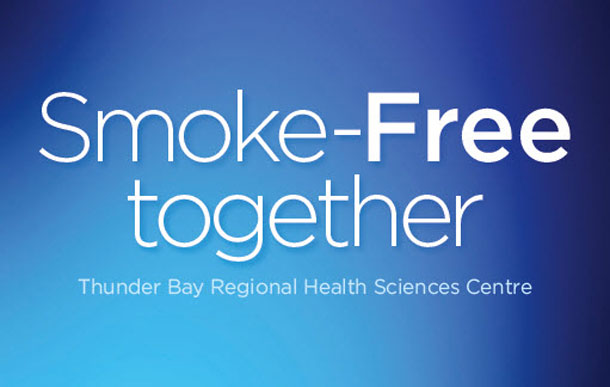 THUNDER BAY – Healthbeat – Smoking is the leading cause of preventable death. Every day doctors and nurses see the devastating impact smoking can have on a patient’s health as patients are admitted repeatedly for diseases related to smoking. Sadly, many of these diseases could have been prevented if the patient was tobacco-free. Quitting smoking is one of the most important things that a person can do to improve their health and prevent major chronic diseases, such as heart disease, stroke, and cancer.
THUNDER BAY – Healthbeat – Smoking is the leading cause of preventable death. Every day doctors and nurses see the devastating impact smoking can have on a patient’s health as patients are admitted repeatedly for diseases related to smoking. Sadly, many of these diseases could have been prevented if the patient was tobacco-free. Quitting smoking is one of the most important things that a person can do to improve their health and prevent major chronic diseases, such as heart disease, stroke, and cancer.
Northwestern Ontario Smoking Rates Higher
In Northwestern Ontario, smoking rates are 26.1 per cent. This is much higher than the provincial average of 20.6 per cent. Other disease rates are also higher, including cancer and cardiovascular disease. What’s interesting is that everybody knows that smoking is bad for their health, yet people still start smoking, mostly at a very young age. This pattern demonstrates the power of the nicotine addiction that tobacco products have and why more work needs to be done to discourage its use.
The burden of smoking is evident in the healthcare system and it’s time for hospitals to start focusing more on prevention and to better encourage cessation for the benefit of their patients and community. This includes focusing on reducing exposure to second-hand smoke, a known risk factor for chronic disease, on hospital grounds. At the Thunder Bay Regional Health Sciences Centre (TBRHSC) this is being demonstrated by the Smoke-Free Together initiative which aims to keep the hospital’s grounds smoke-free.
“TBRHSC is committed to establishing and maintaining a supportive non-smoking environment, while promoting the support services available to staff and patients here and in the community” says Dr. Mark Henderson, Executive Vice President of Patient Services and Regional Vice President Cancer Care Ontario. “The Smoke-Free Together strategy will advance our Healthy Together vision by demonstrating our commitment to improving the health of people in Northwestern Ontario and it puts the health of patients first,” Henderson added.
The hospital is not alone in their work on this initiative. Leadership on this issue comes from frontline staff, managers, and directors from across the hospital, Patient and Family Advisors, the Thunder Bay District Health Unit, Smokers’ Helpline, and researchers from the Northern Ontario School of Medicine. The purpose of including so many people in the process is to ensure the most comprehensive and supportive plan moving forward that’s possible for patients, families, visitors, and staff.
Beginning on September 30th TBRHSC will start to more actively enforce its Smoke-Free Grounds policy. The purpose of the initiative is not to punish people for smoking, but to send a clear message that the hospital and its grounds are a space dedicated to promoting and upholding patient, staff, and visitor health. “Our strengthened commitment to the Smoke-Free Grounds policy will focus on providing quit smoking services to those who want to stop and to provide nicotine maintenance and assistance to those who need to manage their nicotine addiction while in our care,” says Henderson.
The hospital plans to emphasize quit smoking practices not only for patients, but for staff, families and visitors as well.
More information on this initiative will be discussed in a series of upcoming articles.
For more information on TBRHSC’s Smoke-Free Together initiative or resources about quitting smoking visit: www.tbrhsc.net/smokefree.













